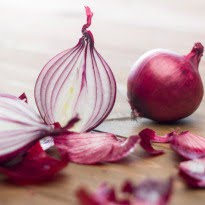
When Canada last updated its Food Guide in 2007, one of the more well-reviewed food books of the year was fiction-writer Barbara Kingsolver’s Animal, Vegetable, Miracle.
The book was a non-fiction account of the author and her family setting out to eat only locally grown food for an entire year. They started their own farm. They made their own cheese. They were better people for it.
A decade later, the Canadian government is getting ready to release a new Food Guide. These days, the hot-sellers in the food and nutrition category are books by Anthony Bourdain and Ina Gartner (the Barefoot Contessa), neither of whom is known for sticking to anything close to a 1,000-mile diet. But moving at typical bureaucratic speed, Health Canada will apparently include a message about the importance of eating local when it puts out the new nutrition blueprint.
The new Food Guide will be emphasizing ‘plant-based sources of protein,’ and warning about foods high in saturated fat
Back in the real world of 2017, Kingsolver has gone back to writing novels. For all I know, she’s still raising her own roosters. But she’s not releasing books about it anymore. Meanwhile the high-animal-protein, low-carb (i.e., high-meat, low-bread) Paleo diet remains popular and seems to have more rigorous science to recommend it than many other eating trends, even if it also seems hard to follow. Yet the new Food Guide will be emphasizing “plant-based sources of protein” and warning about foods high in saturated fat (e.g., steak).
Bourdain has written in the past that for him, “life without veal stock, pork fat, sausage, organ meat, demi-glace, or even stinky cheese is a life not worth living.” He has also said that, collectively, “the enemy of everything good and decent in the human spirit” is vegetarians. And don’t even get him started on “their Hezbollah-like splinter-faction, the vegans.” It seems very unlikely Bourdain will be a fan of Canada’s new holy book of nutrition — a guide which, from the sounds of it, will still have difficulty even accounting for most of the exotic foods the outspoken chef champions on his world travels. (The 2007 guide was given kudos for at least discovering the existence of that curious ethnic grain known as couscous.)
Really, I’m not sure the government even thinks it knows what we should be eating
Does anyone think the government knows what we should be eating? It doesn’t have a very good track-record, having over the years encouraged us to eat more high-fat milk, eggs and liver; then insisted we cut back on high-fat milk, eggs and liver; then essentially told us that fat is just really complicated so, you know, it all depends. Nutritionists differ in their opinions, but most of them agree that past and current Canada Food Guides are confusing and not useful tools for their clients.
Really, I’m not even sure the government itself thinks it knows what we should be eating. A major portion of the new Food Guide is devoted to how we should eat: preferably with family and friends, and preferably after having cooked our meals ourselves. In other words, God only knows what ought to be appearing on your plate, but maybe if it’s suffused with the social warmth and goodness of home and love, all will be well.
Either the Food Guide is about nutrition or it’s not. If not, why are we even calling it a ‘food guide’?
That’s probably the most intelligent recommendation to appear in a Canada Food Guide, but it’s not really about food; it’s about how we live. And I suspect there are many sources out there that do spiritual teachings slightly better than Health Canada. In the same vein, it’s lovely and creative of the new Food Guide to delve into issues including animal cruelty and environmental sustainability, but these are matters on which I’d rather hear from ethicists, philosophers and agricultural scientists.
Either the Food Guide is about nutrition or it’s not. If it is about nutrition, why do we think bureaucrats are going to be any better than the medical and academic communities at making sense of a discipline that has been dominated by shoddy science and short-sighted advice for decades? If the Food Guide isn’t about nutrition, then why are we even calling it a “food guide”?
The best food choices are based on an individual’s health, taste, budget and personal circumstances — highly variable factors. Despite strong historical evidence that governments are the last entities you want centrally planning something that hinges on unpredictable and inconsistent human elements, we keep turning to them for advice on what to eat and feed our kids. As an unsurprising consequence, we are nutritional basket cases. The 2017 Canada Food Guide is not going to change that; let’s just hope it doesn’t make it worse.
[Source”GSmerena”]










